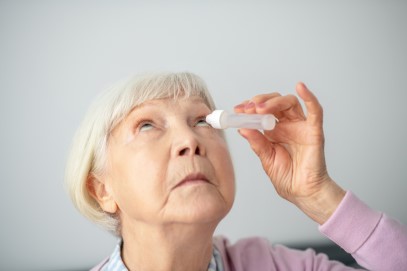DOs’ APC fee hike challenge successful
The Optometrists and Dispensing Opticians Board (ODOB) has announced an increase in members’ Annual Practising Certificate (APC) fees for 2024/2025 to cover increasing costs and secure long-term financial resilience. The APC fee for optometrists has increased by $280 to $1,199 (including a disciplinary levy of $37), while dispensing opticians’ (DOs’) APC fee has increased by just $10 to $907 (including a disciplinary levy of $25).
The cost rise stems from factors including increasing regulation requirements, inflation and recovery costs as a result of the November 2022 cyber-attack, said ODOB chair Kristine Hammond. Regarding the differential fee rises, she said the board has acknowledged concerns from DOs about high fees and the fear these may be a disincentive for them to register or maintain registration. DOs are a small group compared with optometrists (about 200 hold an APC) and yet the cost of regulation is the same, she said.
Courtney Chellew, president of the Association of Dispensing Opticians of New Zealand (ADONZ), co-authored a submission with immediate past president Angela Mitchell on behalf members calling for a minimal fee increase for DOs. She said she is pleased the board took their concerns into consideration.

ADONZ president Courtney Chellew
The main issue remains, however, said Chellew, which is “the industry paying DOs what they are worth, recognising their contribution to the profitability of a business, their service to its customers and the business’ success through their professional knowledge and continuing education”. While APC fees remain high for both professions, the pay disparity between DOs and optometrists is what makes the financial impact higher on DOs, she said.
Dwindling numbers
A decline in the number of registered DOs was also noted by the board, with 225 DOs registered on 31 March 2023 (down from 230 on 31 March 2022) and 187 practising registered DOs.
In ODOB’s view, the main reason DOs are not registering is because the corporates are not supporting them financially, said Hammond. “Throughout New Zealand, independents are very supportive of their dispensing opticians. They pay their annual practicing fee, they pay for them to go to conferences, but the corporates don’t.” Anecdotally, she’s heard DOs are being asked whether they want to receive the money or whether they would like to register, she said.

ODOB chair Kristine Hammond
It’s generally not the members who don’t find it worthwhile to register, it’s their employer who doesn’t want to pay the fee or their continuing education costs, said Chellew. “I can understand the frustration of DOs with registration as there's really not much being protected for us, other than a title. But this won't change unless dispensers get proactive about publicly promoting what they do or pushing for increases in their scope of practice with ODOB. We’re unique as healthcare practitioners in that we have no restrictions. If we had restrictions in paediatrics or myopia dispensing, for example, corporates would have to have their DOs registered to avoid taking up the optometrist’s time.”
Boosting public awareness of DOs
In response to public complaints concerning unregistered dispensers, the ODOB launched a campaign in late 2023 to inform the public of a DO’s role. Mainstream media including press, TV and radio have now covered ODOB’s message advising Kiwis to seek out registered DOs to avoid receiving erroneous correction, potentially impacting their health and mobility. “From a health and safety perspective, we hope increased awareness will encourage people to ask for a registered dispensing optician when they are getting dispensed,” said Hammond.
Unfortunately, if the ODOB receives a complaint about an unregistered health practitioner, it cannot take action to investigate if a breach against the standards occurred, she explained. Instead, the ODOB must direct these patients to the Ministry of Health’s Enforcement team and the Health and Disability Commissioner, which are already burdened with many cases of a more serious nature. “Not being registered limits protections offered to patients. From the ODOB’s point of view, it would be good if the corporates realised this too,” she said.
Hammond said she hopes ADONZ will build on the board’s PR campaign, adding there is also an opportunity for the New Zealand Association of Optometrists to encourage their members to ensure they have a registered DO in practice. “At the end of the day, it doesn’t really matter how good an eye test is if the glasses don’t work – that’s what you are remembered for,” she said.



























